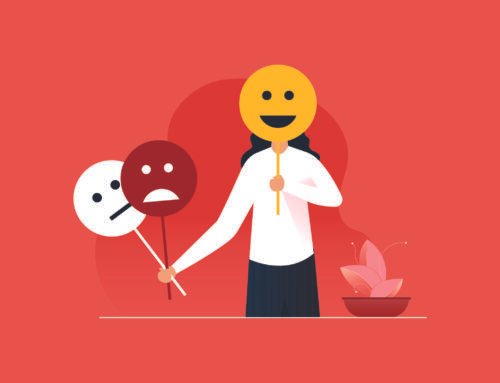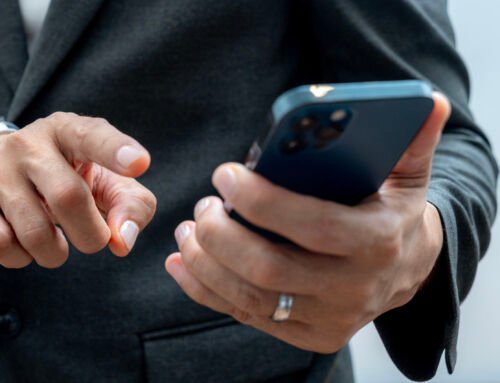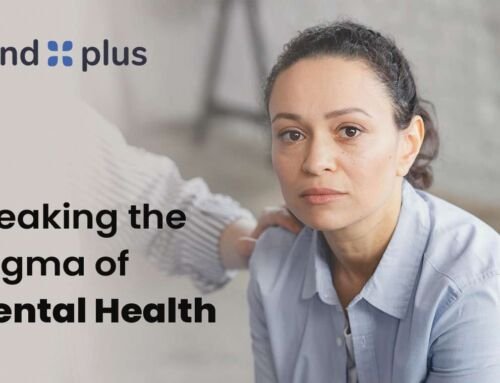How to reduce anxiety
By Sufia Nusrat, Lead Clinical Psychologist
Have you experienced times when you feel more nervous or worried? Have you reacted to stressful situations with fear or unease? Then you have experienced anxiety. This is a normal emotional reaction in the face of stress.
The symptoms of anxiety can be unpleasant and affect your mental and physical wellbeing. Don’t worry though, there are tried and tested ways to help you combat this. Let’s explore how you can manage and reduce the effects of anxiety on your overall health.
What is anxiety?
Everyone experiences stress in their day-to-day life. Anxiety is a normal emotional reaction to stress.

What is anxiety?
Symptoms of anxiety include:
- Feeling nervous, panicked, or tense
- Increased heart rate
- Breathing faster
- Muscle tension
- Sweating
- Shaking
- Feeling tired or weak
- Trouble focusing
- Repetitive thinking about the present worry
- Trouble sleeping
- Stomach problems
- Avoid things that cause anxiety
The feeling of anxiety can be triggered by an event that can make a person feel frustrated or nervous. According to American Psychiatric Association, anxiety is the anticipation of a future concern and is more associated with muscle tension and avoidance behavior.
Anything unknown makes us anxious. One may feel anxiety when making an important life decision or meeting new people. Anxiety can occur before a work presentation when meeting deadlines or finishing household chores. It can even happen while choosing what to wear for an occasion or what to cook for dinner.
Anxiety is not always negative. A positive or controlled amount of anxiety can actually help overcome challenges and contribute to personal performance.
However, being overwhelmed and not being able to return to a non-anxious state has significant implications for overall health and wellbeing. It is important to try to manage this.
Try some of these strategies below to help you regain some balance.
Effective ways to reduce anxiety
- Exercise regularly
Physical exercises release endorphins or ‘feel-good hormones in the body. Endorphins combat the stress hormone cortisol.
Any form of exercise like walking, working out, yoga, aerobics, or dance is quite useful. Note that it has to be regular and consistent to be effective.
- Sleep better
Maintaining a regular sleep routine or sleep hygiene is very helpful to reduce anxiety.

Sleep hygiene includes habits like:
- going to bed and waking up at the same time daily.
- relaxation and mindfulness practice before going to sleep.
- listening to calm and soothing music.
- keeping the room dark, quiet, and at a comfortable temperature.
- using the bed only for sleeping.
- avoiding naps.
- avoid alcohol, caffeine, or nicotine well before bed.
- staying away from gadgets in bed.
The great news is, good sleep hygiene has been shown to be beneficial for overall quality of life.
- Practice Progressive Muscle Relaxation exercises
Anxiety has physical symptoms like muscle tension. Progressive Muscle Relaxation exercises are very helpful to reduce anxiety in the body.
Muscle relaxation techniques focus on tightening and releasing the pressure on the targeted muscle groups.
Different muscles of the body are targeted here in turn, for example:
Hand muscle relaxation exercise
- Inhale. Make a tight fist and feel the pressure for 5-10 seconds.
- Exhale. Release and fully relax the muscles for 10-20 seconds.
- Add mindfulness to your routine
Mindfulness is training the mind to be here and now. It is a deliberate attempt to bring attention to the present moment.

Add mindfulness to your routine
Mindfulness helps you to become aware of what is happening at the moment. It helps you to clearly see the situation and respond adequately. Anxiety is the anticipation of future concerns. Focusing on now adjusts the anxious focus on the future.
Mindfulness practices have proven to be very effective in reducing and managing anxiety. Mindful breathing, mindful listening, guided imagery, and body scan are a few ways to practice. A mindfulness app such as the MindPlus app can help you integrate these practices into your routine.
- Use grounding techniques:
While experiencing extreme anxiety or panic, grounding techniques can help reduce anxiety.

Use grounding techniques
The 54321 grounding technique uses all the five senses to bring attention to the present moment.
Here’s how to do it:
- Sit comfortably. Breathe in and breathe out slowly.
- Look around you and name 5 things you can see.
- Now name 4 things you can touch.
- Listen and name 3 things you can hear.
- Next, name 2 things you can smell.
- Finally, name 1 thing you can taste.
This simple technique is highly effective and has a calming effect.
- Try breathing exercises:
Shortness of breath is a common symptom of anxiety. Breathing exercises alter the breathing pattern which helps to reduce anxiety.
Breathing exercises calm the body. A calm state can help in preparing the mind for an appropriate response to the anxiety trigger.
There are different types of breathing exercises like deep breathing, rhythmic breathing, and abdominal breathing.
Here’s a good technique for deep breathing, especially if you feel short of breath:
- Stand or sit comfortably.
- Slightly pull your elbows back to open your chest.
- Inhale deeply through your nose.
- Hold your breath and count to 5.
- Exhale slowly through your nose.
- Repeat as needed.
- Practice self-soothing exercises:
Self-soothing means doing something nice for yourself that makes you feel relaxed. This can help you calm down.
Try any of the following:
- Take a hot water bath
- Light scented candles
- Listen to music
- Watch television
- Have a massage
The calm state you create can help you in thinking of a better coping response.
- Socialize or find a support group
Anxiety leads to avoidance behavior. However, avoidance actually increases anxiety. Social support is very important.

Socialize or find a support group
It always helps to talk to people who are supportive and encouraging. Sharing worries and concerns with the right people give a sense of belonging. Finding a support group in the neighborhood or online can be helpful too.
You might benefit from specialist support for your anxiety. Look for a trained therapist and counseling can be very beneficial.
- Journal every day
Writing helps to understand thoughts and feelings. It will enable you to know your triggers and analyze your reactions. This will help in developing healthy coping strategies.
Taking time to journal every day has a positive impact on your well-being. It is a great habit to build.
Some journaling prompts you can use for your anxiety:
- Note down all the things that are worrying you right now
- When you have felt anxious in the past, what has helped you to calm down?
- Note down all the questions in your head right now. Try to write an answer for each one.
- What’s a stressful experience you had in the past? How did you overcome it?
Maintaining a gratitude journal can be helpful to see the positives in the day. This can also reduce anxiety. Simply write 3-5 things each day that you are grateful for.
For example:
Today I am grateful for my best friend, the lovely dinner I ate, the lady who smiled at me in the market, and the sunshine all day.
- Avoid alcohol, drugs, and caffeine
Anxiety can be overwhelming. Using alcohol or drugs to calm down is a very unhealthy strategy to reduce anxiety.
You might get brief relief but it only paves the way to being more dependent on the substance. It is much better to develop healthy coping strategies.
You should even be wary of your tea and coffee intake. Caffeine is a stimulant. It excites the brain and body. The use of stimulants worsens anxiety. Try decaf coffee and green teas as alternatives.
These techniques can help you combat everyday stress and anxiety. However, do be aware that significant anxiety can be a treatable mental health disorder.
What is anxiety disorder?
Anxiety disorder is diagnosed when it interferes significantly with our normal daily functioning. One may find oneself so overwhelmed that one chooses to avoid situations.
Excessive anxiety affects personal relationships, social life, academic achievements, and work performance.
Type of anxiety disorder
As per ICD-11 classification, these are:
- Generalized Anxiety Disorder
- Agoraphobia
- Specific Phobias
- Social Anxiety Disorder
- Separation Anxiety Disorder
- Selective Mutism
- Fear Related Disorder
When to seek professional help for anxiety
Anxiety is treatable. Speak to a mental health professional when anxiety seems to be overwhelming or interfering with your normal day-to-day living. The great news is anxiety can be effectively treated with medicines and therapy.

When to seek professional help for anxiety
Manage anxiety effectively
Anxiety is a normal emotion that we all experience. It is a natural reaction to stress. The symptoms of anxiety can be unpleasant and sometimes anxiety can be overwhelming.
Your lifestyle can impact how well you manage stress and anxiety. Ensuring regular exercise, paying attention to sleep hygiene, and avoiding stimulants such as caffeine are good overall lifestyle choices.
Don’t forget to ensure that self-care and socializing with others are not avoided because you are feeling low. These are also essential tools to help you regain balance and help your coping responses.
By adopting some simple good habits, you can also strengthen your ability to cope. Practicing mindfulness, breathing techniques and journaling are among the simple daily routines you can build to help restore mental wellbeing.
Remember that anxiety should not feel too overwhelming or impact your daily functioning. In that case, do seek the support of mental health professional.

Manage anxiety effectively





